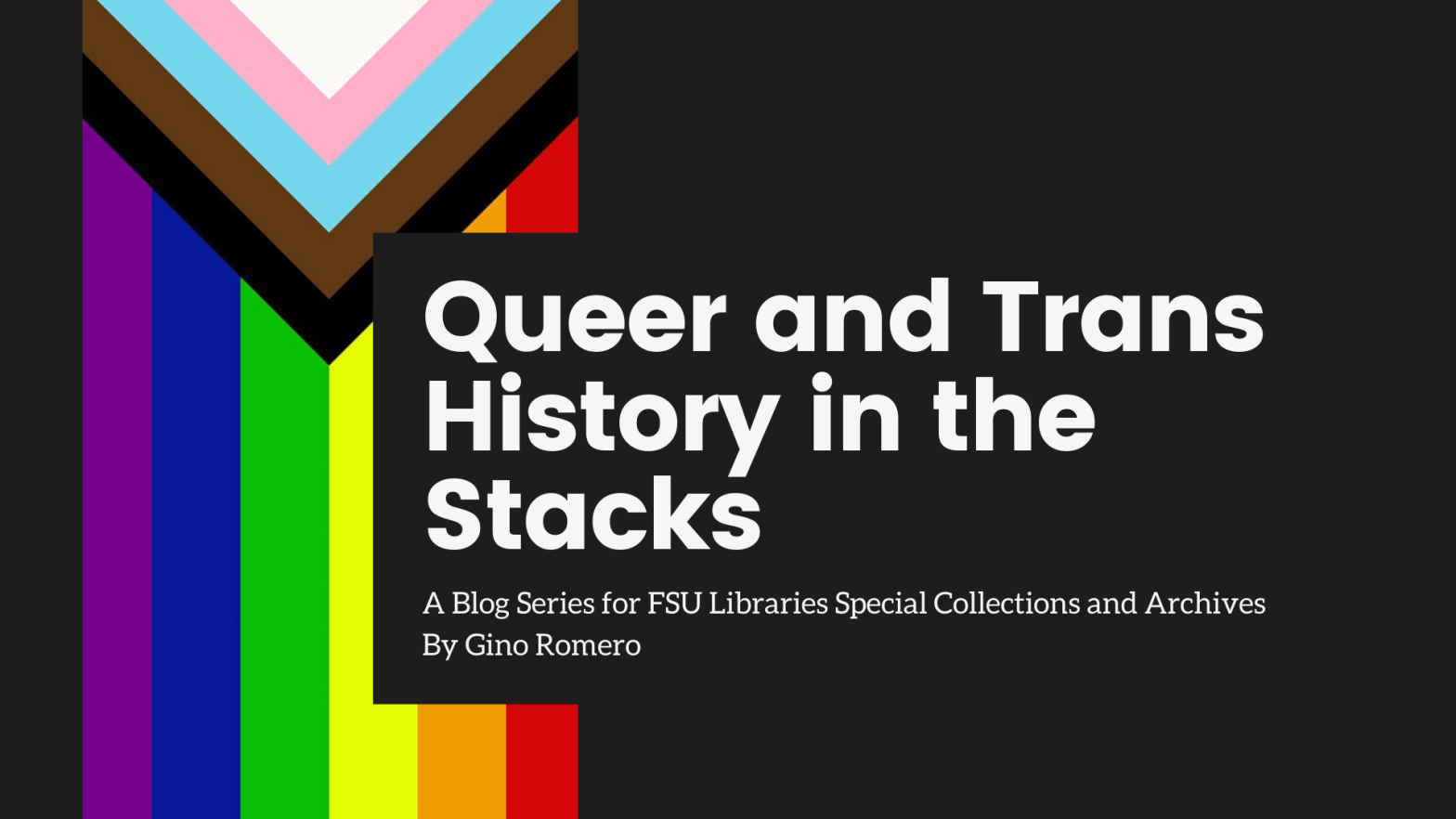***Trigger Warning: trans slurs/derogatory terms***

Our first submission is from Kacee Reguera, a recently-graduated student worker, who has been with Special collections for 2 years. While this project was geared towards the full-time staff, I chose to highlight her contribution first because I’m happy to see this conversation being engaged with by everyone in the community. Getting students involved in this process ensures that the conversation continues in the next generation of professionals.
The object she found is How to Transition on 63 Cents a Day by Lee Krist, which is an unbound letterpress-printed artists’ book by a transgender man that describes the author’s transition and coming out story through postcards addressed to his mother and other ephemera. It is a very intimate story meant to bring us into his gender and family experience in a personal way. When students interact with it, they report feeling as though they’re digging through a collection of personal memories, like an act of voyeurism. This book was published in 2013, making it fairly recent.
Video Excerpt of How to Transition on 63 Cents a Day by Lee Krist, 2013
Though How to Transition on 63 Cents a Day is an amazing book that is well designed and a beautifully told story, and I’m excited for the opportunity to share the text here, it does not qualify for the challenge I initially raised. This project is geared towards highlighting queer and trans BIPOC voices, which are sorely lacking in FSU Special Collections and Archives. Kacee’s efforts to provide an example, though not exactly what I was looking for, both demonstrates this lack and creates an opportunity to explore problems in subject headings for these materials.
Keeping in mind that this is a queer and trans-focused project, it is important that we also recognize history. Black and Latinx trans women were at the forefront of the fight for queer rights. Aside from throwing the first brick, which is still a point of contention, BIPOC trans individuals were at the apex of the queer rights movement and that is something that all institutions must acknowledge and recognize when collecting these histories. As FSU’s Pride Union was founded the same year as the start of the Stonewall Riots, I feel that this holds especially true for us. Out of the three titles that appear when you search the term “transgender,” none of them are by queer or trans people of color. Equitability and accessibility must be taken into consideration at all library levels, from acquisitions to cataloging.
Reina Gossett: Historical Erasure as Violence from BCRW Videos on Vimeo.
How to Transition on 63 Cents a Day is a great text and has been very useful in giving some insight into the trans experience. Many in our library commonly pick it when they want LGBTQ+ related materials. However, when I looked at the catalog record for it, I discovered outdated and now offensive terms are found in the “Subjects, general” section of the entry. I don’t have a libraries degree (yet), and I have only been working with Special Collections for a year, but it blew my mind that these derogatory terms made it into a catalog record for a book published this decade. After ranting to my roommate for 30 minutes on the impact of white supremacy in library settings, I wanted to know where these terms came from.
In order to unpack these issues, a little background is needed, and I thought I’d share what I discovered in the process of my research.
LOCSH (LIBRARY OF CONGRESS SUBJECT HEADINGS):

In an attempt to standardize the organization and classification of information, the Library of Congress developed a list of terms to be referenced and used when creating records for materials. This list is one of the banks that institutions may pull search terms from when intaking materials into their system. Terms were chosen based on what they thought the ‘average patron’ would search to find materials about a certain topic…
Take a guess what the ‘average patron’ looked like to these information gatekeepers. Search headings for identity groups were, it seems, determined by what they thought a cisgender heterosexual affluent white christian male would search to find it. The record for How to Transition on 60 Cents a Day is evidence of this historical practice. The thing that’s particularly cruel about this is queer and trans people (or any marginalized person for that matter) has to comb through slurs and strife to even look at their own history.
Click here for the article I referenced for this section.
HOW DO LIBRARY OF CONGRESS SUBJECT HEADINGS GET INTO CATALOG RECORDS?:
Just because a subject heading exists does not mean institutions are required to adhere to them. Cataloging decisions and methodologies are governed by best practices, but the ultimate decision lies within the jurisdiction of the institution. In the next blog post in this series, I will be exploring current/best practices and the ways they perpetuate outdated/derogatory terminology. I especially want to take a look at copy cataloging as a practice, and how we can/will intervene when a copied record contains terminology that needs to be addressed.
Quick queer and trans history:
A quick overview of queer history:
A cursory overview of trans history:

